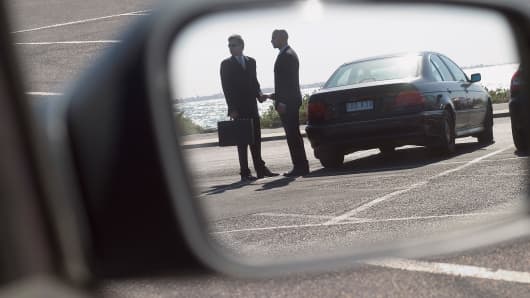These are most corrupt countries in the world

Corruption in all areas of life is still rife globally but more countries continued to improve their “corruption perception” scores in 2015, according to the latest research from anti-corruption body Transparency International.
According to the German lobbying group’s latest “Corruption Perceptions Index” for 2015, which covers the perception of public sector corruption in 168 countries, the majority is still generally seen as more corrupt than not — but more countries saw their score improving rather than declining.
Overall, two-thirds of the 168 countries on the index scored below 50, on a scale from 0 (perceived to be highly corrupt) to 100 (perceived to be very clean), Transparency International said in the report released on Wednesday.
The good, the bad, the ugly
The Corruption Perceptions Index is based on expert opinions of public sector corruption. Countries’ scores can be helped by open government where the public can hold leaders to account, while a poor score is a sign of prevalent bribery, lack of punishment for corruption and public
institutions that don’t respond to citizens’ needs, the anti-corruption organization said.
With that in mind, the countries perceived as the most corrupt and the worst performers on the index in 2015 were North Korea and Somalia, each scoring 8 on the index.
Transparency International said that in addition to conflict and war, “poor governance, weak public institutions like police and the judiciary, and a lack of independence in the media characterize the lowest ranked countries.”
In contrast, European nation Denmark is seen as the least corrupt country out of the 168 indexed, retaining the top spot for a second year in a row with a score of 91. Fellow Scandinavian countries Finland and Sweden came a close second and third place, respectively.
“Top performers share key characteristics: high levels of press freedom; access to budget information so the public knows where money comes from and how it is spent; high levels of integrity among people in power; and judiciaries that don’t differentiate between rich and poor, and that are truly independent from other parts of government.”
European countries dominated the top ten places in the index, although New Zealand was in fourth place and Singapore and Canada edged into the top ten.
While several countries improved their standing in the index, including Greece, Senegal and the U.K. (ranking jointly with Luxembourg in 10th place with its score rising to 81 on the index in 2015, from 78 in the previous year) others showed declines.
Emerging market Brazil was the biggest decliner in the index, falling 5 points and dropping 7 positions to a rank of 76. The result could be attributed to the unfolding Petrobras scandal which brought people onto the streets in 2015.
The future?
Despite corruption still being “rife,” the chairman of the civil society organization stated that more citizens were taking a stance against dodgy practices.
The report noted that in places including Guatemala, Sri Lanka and Ghana, citizen activists in groups and on their own “worked hard to drive out the corrupt, sending a strong message that should encourage others to take decisive action in 2016.”
Read MoreHow China’s anti-corruption drive is hurting growth
José Ugaz, the chairman of Transparency International, noted that corruption could be defeated “if we work together. To stamp out the abuse of power, bribery and shed light on secret deals, citizens must together tell their governments they have had enough.”
“The 2015 Corruption Perceptions Index clearly shows that corruption remains a blight around the world. But 2015 was also a year when people again took to the streets to protest corruption. People across the globe sent a strong signal to those in power: it is time to tackle grand corruption,” he added.
The top 10 ranked countries with the lowest perceptions index are:
- 1 Denmark
- 2 Finland
- 3 Sweden
- 4 New Zealand
- 5 Netherlands
- 5 Norway
- 7 Switzerland
- 8 Singapore
- 9 Canada
- 10 Germany
- 10 Luxembourg
- 10 United Kingdom
And the bottom 10 are:
- 158 Guinea-Bissau
- 158 Venezuela
- 161 Iraq
- 161 Libya
- 163 Angola
- 163 South Sudan
- 165 Sudan
- 166 Afghanistan
- 167 Korea (North)
- 167 Somalia

Leave a comment
You must be logged in to post a comment.